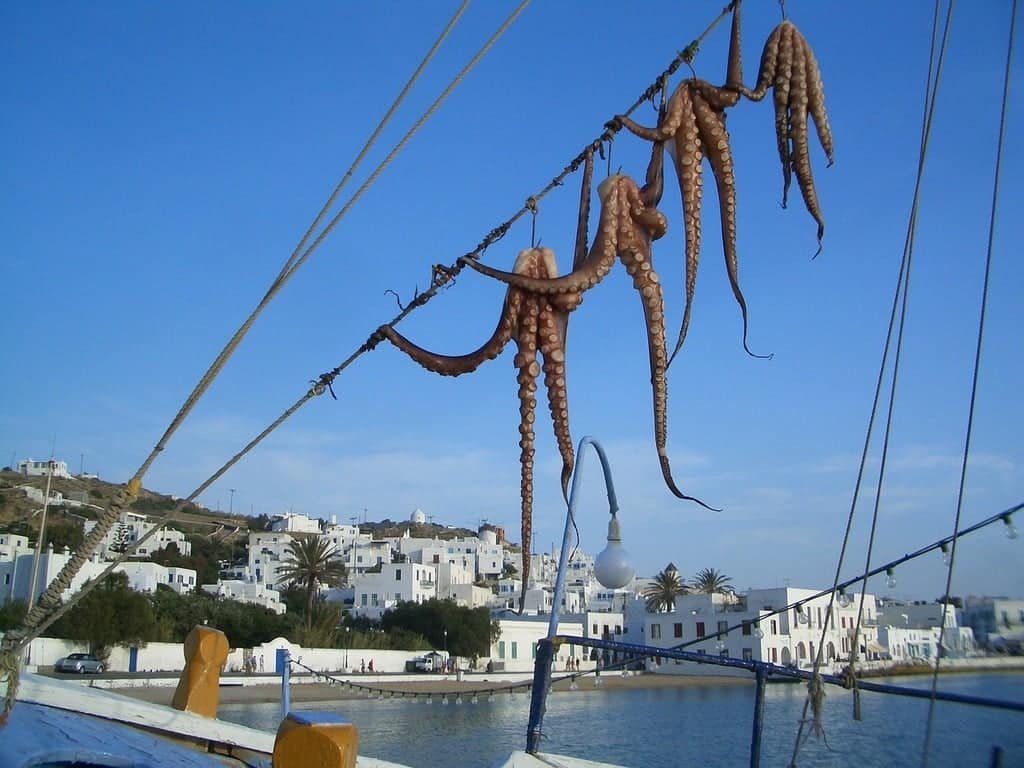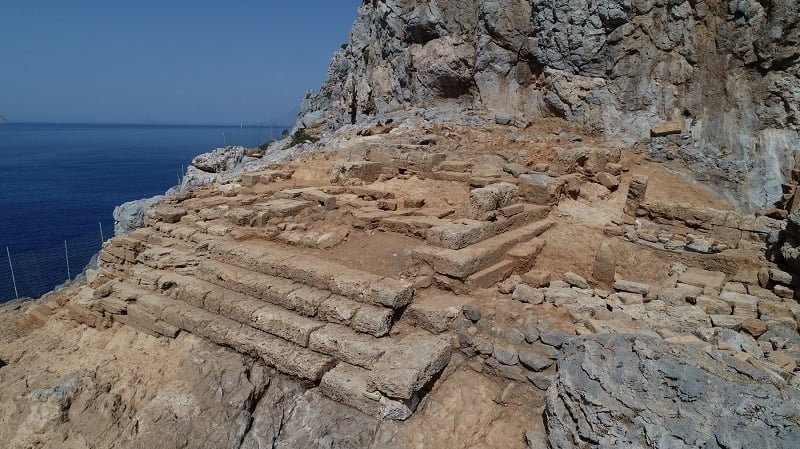
A major campaign by the conservation group Sea Shepherd is currently underway in Greece’s Thracian Sea to tackle widespread illegal octopus fishing. Working together with local authorities from Greece’s Thrace region, their staff and volunteers have been working hard to retrieve thousands of illegal octopus traps that pose a direct threat to the region’s fragile marine ecosystems.
The problem of illegal octopus fishing in Greece
The Thracian Sea, located at the northern tip of the Aegean, is one of Greece’s most important marine ecosystems. It is a vital habitat for a large number of marine species, including endangered harbour porpoises, sharks and rays. Unfortunately, this region is also a hotspot for illegal fishing.
Greece has strict laws that explicitly prohibit octopus trapping between July and September, a period that is crucial for the species’ breeding. However, patrolling Greece’s massive areas of sea is not always easy, so poachers are still scattering thousands of these plastic death traps all over the seabed despite the prohibition set by the authorities.
This summer, Sea Shepherd launched its campaign, led by the vessel the Sea Eagle, with the clear mission to clear the seafloor of this destructive fishing gear. During an earlier scouting mission, the crew managed to recover a staggering 6,500 traps in just 17 days, showing the magnitude of the problem.
This year, those who try to protect octopuses are aiming to beat that record and retrieve even more illegal traps. Early reports are promising, with thousands of traps already having been removed. The illegal traps are normally made with cheap plastic containers, which act as a sort of underwater killing machine, not just for octopuses but for any other marine life that gets lured in and trapped.
The damage does not stop there. Some of these illegal traps stay underwater for long periods of time, which is why they have become so brittle that they are literally crumbling, flaking off harmful microplastics into the water column. So, by pulling this gear out, Sea Shepherd members also tackle the wider problem of plastic pollution at its source.
The collaboration with local officials has proved to be very efficient. Key players such as the Region of Eastern Macedonia and Thrace, along with the Greek Coast Guard, have been important in assisting the work of these people, leading to the campaign’s success.
@ta_nea.gr Tα πληρώματα της εθελοντικής οργάνωσης Sea Shepherd συμβάλλουν στην καταπολέμηση της παράνομης αλιείας. Μετά από μια αναγνωριστική αποστολή πέρυσι που εντόπισε 6.500 παγίδες σε μόλις 17 ημέρες, φέτος το καλοκαίρι επέστρεψαν με το πλοίο Sea Eagle, που προσκλήθηκε στη Βόρεια Ελλάδα από τις τοπικές αρχές, συμπεριλαμβανομένης της Περιφέρειας Ανατολικής Μακεδονίας & Θράκης, του Τμήματος Αλιείας Ξάνθης, και την υποστήριξη του Ελληνικού Συνδέσμου Ιχθυολόγων. Με την καθοδήγηση του Ελληνικού Λιμενικού Σώματος, ξεκινήσαν μια εκστρατεία στις 4 Ιουλίου για να απαλλάξουν τον βυθό του Αιγαίου από παράνομες παγίδες χταποδιών. Και οι αριθμοί; Πέρα από κάθε προσδοκία. #taneagr #octopus #aegeansea #seasheperd #tanea #news #eidiseis #ειδησεις
♬ πρωτότυπος ήχος – ΤΑ ΝΕΑ – ΤΑ ΝΕΑ
When is it legal to fish for octopuses in Greece?
Based on Greek regulations, octopus fishing is generally permitted outside of the main breeding season, which is legally protected. This means that, for recreational purposes, individuals can typically fish for octopus from October to June. However, there are a few important rules to follow. For instance, spearfishing for octopus is forbidden during the month of May and is only allowed during daylight hours. There are also specific size and weight limits; an octopus must be at least 500 grams to be legally caught, in an attempt to protect younger octopuses.
As for production, Greece is a major player in the European octopus market, with annual production often in the thousands of tonnes. However, the country’s significant domestic demand means it still relies on importing a large amount of octopus to satisfy consumption, as octopus dishes are very popular, particularly among islanders and tourists.


